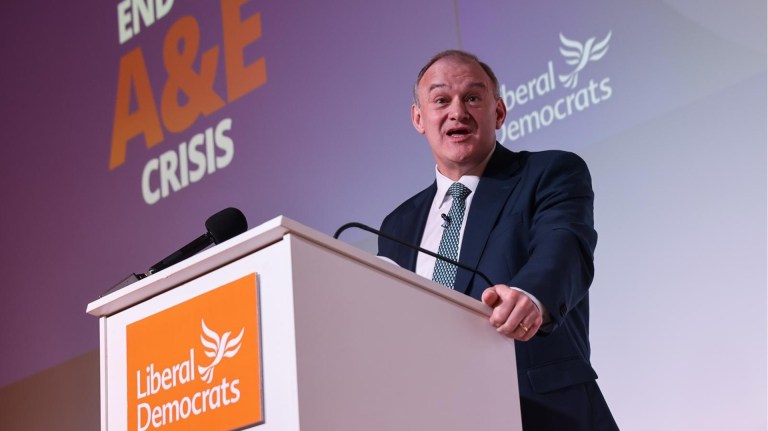LGBTQ+ rights
Rishi Sunak has pledged to ban trans women from female hospital wards, while making jokes in parliament at the expense of trans people. Starmer has promised to “modernise” the Gender Recognition Act.
“For years the government has pursued a divisive agenda, demonising transgender people to distract from their own failures and trying to roll back LGBTQ+ rights across the board. It is clear now that this is not a direction that sits well with the people of the UK. We have no doubt that there will be some more mudslinging towards marginalised people in the next six weeks, but we are confident that it won’t be a vote winner,” Cleo Madeleine of Gendered Intelligence told the Big Issue.
“Whatever the outcome of July’s general election, we hope that it brings a new direction. It’s time to get queer rights back on track.”
Leasehold reform has rumbled on throughout this parliament, ever since Boris Johnson made it a core part of his 2019 manifesto. No conclusion has been reached over a promise to reduce ground rents to a peppercorn.
The Leasehold and Freehold Reform Bill is yet to fully make its way through parliament after being introduced in November 2023. This is now in doubt, and needs urgent action to become a reality, said Linz Darlington, MD of leasehold extension specialists Homehold.
“Clearly for it to pass now, it will have to be prioritised during any wash-up period before parliament is dissolved on 30 May – and there is no guarantee this will happen,” said Darlington.
Advertising helps fund Big Issue’s mission to end poverty
“What is clear, is that even if the bill is passed, it will not come into effect on a specified day. The drafting of the current bill means it is up to the secretary of state to decide when it comes into force.
“For this bill to be of practical use for leaseholders, certainly from the perspective of lease extensions and freehold purchases, there is further work to be done in terms of secondary legislation before it can be implemented. It certainly won’t be the case that lease extensions will be cheaper next month than they are this month.
Climate
After Sunak’s net zero U-turns, the upcoming general election presents a chance to put climate change back at the heart of the economy, said Elizabeth Robinson, director of the Grantham Research Institute on Climate Change and the Environment at the London School of Economics and Political Science.
“Unfortunately the current government has backtracked on key climate commitments and is no longer viewed as a global leader on climate action,“ said Robinson.
“It is not too late for politicians to act to keep temperatures well below 2C warming but they have to recognise that the scale and pace of structural change must be rapid and backed up with policies and actions that deliver a just transition to net zero. At present, collectively, we are failing to rise to the challenge.
“This election we need to see political parties be bold, ambitious, and prepared to implement the changes this country and the planet needs.”
Advertising helps fund Big Issue’s mission to end poverty
Mental health
Hot on the heels of the pandemic and the cost of living crisis, youth mental health referrals reached an all-time high of 507,000 in December 2023.
“For too long we have seen very little action from those in power to tackle waiting lists and provide better, earlier support. We also know most young people don’t feel heard by politicians, which is making them feel powerless and impacting their mental health,” said Tom Madders, director of communications and campaigns at YoungMinds.
“The stakes for this election could not be higher, but we know change is possible. Politicians from across the divide must take action to rebuild trust with young people and turn the tide on worsening mental health for good. This requires a major rethink of all the systems that impact young people’s mental health. It is welcome that a date has finally been set and that young people have a long-awaited chance for their voices to be heard.”
Migrant rights
Sunak has admitted flights to Rwanda will not take off before the general election. His premiership has seen huge numbers of newly-recognised refugees pushed into destitution and homelessness.
“The next government must make an urgent commitment to repeal the Illegal Migration Act and the Safety of Rwanda Act, which are causing significant fear and hardship in refugee communities, driving people to disengage with essential support services and making them more vulnerable to homelessness and destitution,” said Bridget Young, director of NACCOM.
Wider reform is needed, said Enver Solomon, CEO of the Refugee Council. Solomon said the next government “must quickly process all asylum claims and restore the right to asylum for any person who comes to our country seeking safety, so they are given a fair hearing on UK soil and treated with the dignity and humanity they deserve. Anybody who has been detained should now be immediately released.”
Advertising helps fund Big Issue’s mission to end poverty









